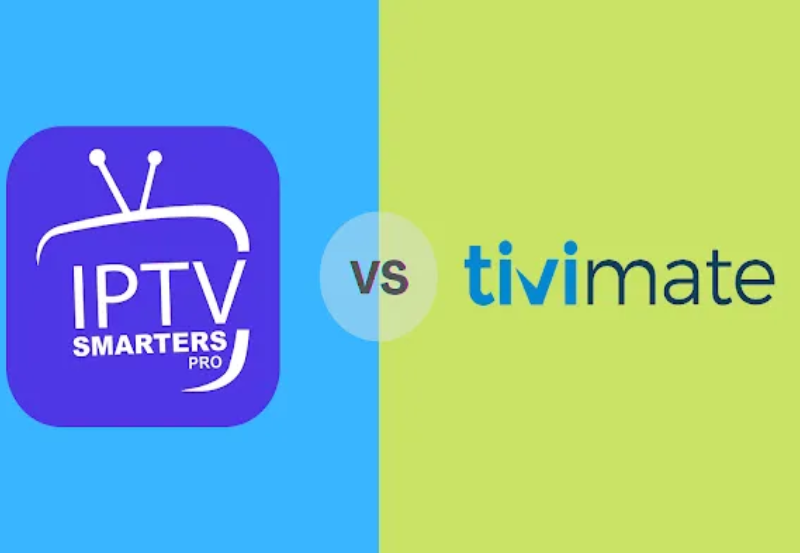Imagine you’re settled in on your couch, remote in hand, eager to explore a universe of content. You’ve probably heard about Kodi IPTV’s potential to unlock a treasure trove of streaming media. But before you dive in, there’s an important aspect to consider – the legalities surrounding its use. Whether you’re a seasoned user or new to the world of IPTV, grasping these legal nuances is crucial. This article will guide you through the intricate legal landscape, ensuring you enjoy your streaming experience without legal pitfalls.
What is Kodi IPTV?
At its core, Kodi is a versatile media player that has gained wide popularity due to its open-source nature. This flexibility allows users to install a plethora of add-ons, turning Kodi into a powerhouse for streaming various types of multimedia content including IPTV (Internet Protocol Television). This technology enables you to stream live TV channels via the internet, bypassing traditional cable or satellite services.
Why is IPTV Popular for Firestick?
IPTV service for Firestick has become immensely popular, especially among viewers seeking customizable streaming solutions. With a variety of IPTV subscription plans available, users can access an impressive array of live channels and on-demand content right from their Firestick device. However, navigating through these options requires awareness of certain legalities to ensure compliance and avoid risks.
Expert Insight:
Watch your favorite sports channels seamlessly with Top IPTV subscriptions for unparalleled streaming quality.
Legal Concerns with IPTV and Kodi
While Kodi itself is completely legal, the legality of using certain IPTV services or add-ons can be murky. This is where the distinction between legitimate and pirated content becomes critical. Many add-ons for Kodi allow access to unlicensed streams, which can fall afoul of copyright laws. Users often find themselves in a legal grey area unknowingly. Therefore, it’s essential to stick to official and legal services to avoid any unintended infringements.
Licensing and Copyright Issues
When you opt for an IPTV service, understanding the licensing agreements is crucial. Licensed IPTV services pay fees to content creators and distributors, thereby offering content legally. However, some services bypass these agreements, posing legal risks to users. The principle of ‘know your source’ proves handy here to safeguard against such risks.
How to Maximize Your Streaming Delight
Maximizing your streaming experience isn’t just about having access to more content; it’s about ensuring that access is legal and safe. Here are some straightforward tips:
- Opt for legal IPTV providers: Choose services that are transparent about their licensing arrangements, reducing your exposure to legal trouble.
- Use VPNs wisely: While VPNs can protect your privacy, they should not be used to access pirated content. Ensure your streaming remains within legal boundaries.
- Stay informed: Streamers should keep themselves updated about changes in streaming laws and technology to stay on the right side of the law.
Common Legal Misunderstandings
Misinterpretation of legal guidelines is common, leading to unintentional violations. One of the most frequent mistakes is assuming that all IPTV services are legitimate because they require a subscription. However, payment doesn’t guarantee legality. Another misconception is using international IPTV services without understanding regional licensing laws, which vary significantly and can lead to legal issues.
The Role of ISPs and Legal Enforcement
Internet Service Providers (ISPs) play a significant role when it comes to policing illegal streaming. ISPs often monitor traffic for suspicious activities and may throttle or halt service if they detect illegal streaming. Some jurisdictions mandate ISPs to notify users or take action to prevent access to unauthorized content, adding another layer to the legal considerations for users.
Evaluating the Long-term Implications of IPTV Usage
While the immediate legal risks of using unauthorized IPTV services are evident, consider the long-term implications too. Engaging in illegal streaming may result in hefty fines and potential legal action. On a broader scale, continued support of these services impacts content creators, leading to reduced quality and quantity of content over time. Making informed choices contributes to a healthier digital ecosystem.
Carving a Legal Path in the World of IPTV
Navigating the legalities of IPTV can seem daunting, but a proactive approach is undeniable. By supporting legal services and staying informed, you’re not only protecting yourself from potential legal repercussions but also contributing to a sustainable streaming environment. With these measures, you can indeed maximize your streaming delight, enjoying your favorite shows and channels with peace of mind.
FAQ: Demystifying Legal Concerns of Using Kodi IPTV

Is Kodi legal to use?
Kodi itself is completely legal. It’s an open-source media player, and its legality depends on how it’s used, specifically the add-ons and content you’re accessing.
Are all IPTV services illegal?
No, not all IPTV services are illegal. There are many legitimate services that comply with licensing agreements. It’s crucial to choose verified and transparent IPTV subscription plans to avoid any legal issues.
Can using a VPN protect me from legal issues when using Kodi?
While a VPN can enhance privacy, it won’t protect against legal issues if you’re accessing illegal content. Legality is determined by the nature of the content, not the anonymity of access.
What are the penalties for using illegal IPTV services?
Penalties for accessing illegal IPTV services can include fines and legal action. The severity varies based on jurisdiction and the nature of the infringement.
How can I identify legal IPTV services?
Look for IPTV services that are clear about their licensing, have ties with known media companies, and provide proper customer support. Legitimate services often have a professional online presence and transparent terms of service.
Do ISPs monitor streaming activities?
Yes, ISPs may monitor streaming activities to detect and prevent illegal activities. This often includes notifying users or taking measures to restrict access to unauthorized content.
Why is understanding IPTV legality important?
Understanding IPTV legality helps avoid legal issues, supports content creators, and ensures a healthy digital media landscape. It’s a crucial step for responsible and enjoyable streaming.
Understanding MAG Box Compatibility with Streaming Services





